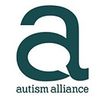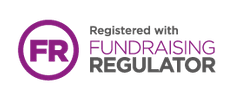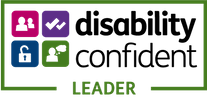Diagnosed three years ago at the age of 53, Patrick now works as a specialist mentor for an autism charity in addition to mentoring undergraduate students in Portsmouth University and working towards completing his MA in Philosophy at the Open University. With a key interest in peer support, he is also a member of Autism Unlimited’s steering group.
Receiving his autism diagnosis was a very important moment, having spent his life not understanding fundamental aspects of himself and always feeling like something was missing. He used to describe himself as ‘not a real person’, and he couldn't understand what that really meant. There was a moment where of realization where he thought he might be autistic, and it seemed an incredible thought at the time.
What followed was the diagnostic process, which had him hoping everything would then magically become in focus and it would all make sense. While a lot of things did start to make a lot of sense, it was the beginning of another process of understanding what that meant for him.
He felt as if he’d come to the end of his exploration by getting this diagnosis, when it was actually a starting point over something else as well, and the acceptance of that has taken a couple of years – to accept himself and understand what that means to him.
He says, ‘I would say to anyone who is going through that, especially a late diagnosis, give yourself some time afterwards and don’t rush it. Try and learn as much as you can about autism and various reading. I do a lot of reading. There’s a lot of bewildering terms, language, things have changed over time, terminology has changed over time. But also once you’ve learnt that, talk to some other people, find some peers and talk to them.’
An avid reader, he learnt a lot and read a lot of books when he was first diagnosed, approaching it the same way he approaches life, which is to learn rapidly about things.
‘I view myself as autistic rather than having autism, so that’s kind of my world view of this. I’m autistic and autism cannot be subtracted from me. It’s not a thing which I had, I didn’t have at one stage and now I do have.’
It is not something he can imagine himself being without – it influences everything; his perception of the world, the way he learns, his approach to activities, things he enjoys – they are all influenced to some degree by autism, by being an autistic adult.
He was happy to discover this revelation about himself, ‘As an autistic adult, I’m individual, I’m not the sum of the diagnostic process that evaluated me and told me that was what I am. We’re all much more complicated than that. But despite that, there are these things which are a part of my life, and some things are difficult for me and that can imperceptible as well.’
Masking, or camouflaging, involves imitating the behaviours of others in an attempt to fit in. Patrick has gotten through life by trying to get by, by pretending to be neurotypical without realising what he was doing. Particularly for adults who receive a late diagnosis, there becomes a conflict with the ability to camouflage, and understanding that has been integral to Patrick’s acceptance.
Over the course of the year, there has been real growth with his acceptance of his autism. A year ago, he struggled to even say he was autistic, and now he is sharing his experiences on film. When he was diagnosed, there were some things he found very confusing, so by talking about it now, he hopes someone may see it and find it useful.
In terms of hobbies and activities he enjoys doing, intense interests have dominated his life. Each phase of his life has had key focus interests which have determined both what he had done and who he was during that time. Before his diagnosis, he was always searching for the ‘real’ him, looking for different personas and thinking he would be comfortable if they were mixed with an intense interest.
At certain points he has expressed interest in cycling, motorcycling, guitar playing, learning French, and for each of those phases, everything in his life was dedicated to that interest.
He says, ‘Everything, my whole day, my life was devoted to that interest and it had been like the strongest and most powerful euphoric feeling. The feeling of an interest taking me is exciting. At the moment I do not have an interest of that kind and I feel a grief, I feel a loss because of it.’
Although, he is hoping his upcoming dissertation on animal ethics will fill that void and translate into another intense interest. As a vegan, the topic is important to him and he wanted to write about something meaningful to him.
In previous years, his interest in cycling lead to him becoming a competitive cyclist. In the midst of this, he also began to learn a bit of French to have a different challenge. With all of his interests, there’s a sense of development – it's important that he’s learning to do something that betters him in the future, and that developmental factor is what drives him forward
He didn’t have a very good academic life at school or college, so after a long time, pursued a modern languages degree at Open University. Then, just before his diagnosis, he decided he wanted to continue education and undertook a psychology masters in an effort to better understand himself. It was during that process that he started his diagnosis, until it was interrupted by the lockdown.
All of a sudden, he was just at home and felt he had to be doing something, and so he began a Philosophy MA at Open University, which is now nearing the end.
He became involved with Autism Unlimited after being invited to join a steering group, alongside 8 other neurodivergent individuals. The mix of autistic adults and staff from Autism Unlimited try to create projects which will provide support to whoever needs it, such as peer support, and while it is still in the early stages, he looks forward to getting involved in the future developments.
As like many others, Patrick had a fragmentary image of what autism actually is. Stereotypes exist within every group, but they’re simplistic and won’t represent everyone. The image you have of autism should be developed and built on, and that takes some time.
He advises those newly diagnosed to find other information, do some reading, talk to some people and see how the range within the neurodivergent community is quite vast, saying, ‘Each person is different, it’s not one set of diagnosis that can just represent one person entirely.’
Getting to know other autistic people is essential to improving your understanding of autism and how individual it is, and he looks forward to being able to provide this peer support through Autism Unlimited.
He adds, ‘Being autistic does not limit what you can do. I have difficulties with things, I have difficulties with people, sometimes reading people, difficulties in situations, anxiety, I could go on, but they’re not insurmountable...You can find methods of getting round so these don’t have to stop you.’
In fact, some elements have become his strengths – his tenacity, determination and focus all come from his neuro-divergence. There are things in life that he has done, interests and experiences, that he wouldn’t have normally done, adding, ‘They've driven me to excel, they’ve driven me to beyond my normal limits of myself, so that provided me with an opportunity.’
He concludes by explaining that being autistic isn’t automatically a negative thing – it's a mixture, and you can find ways to cope with the negative and you can take advantage of the positive.






